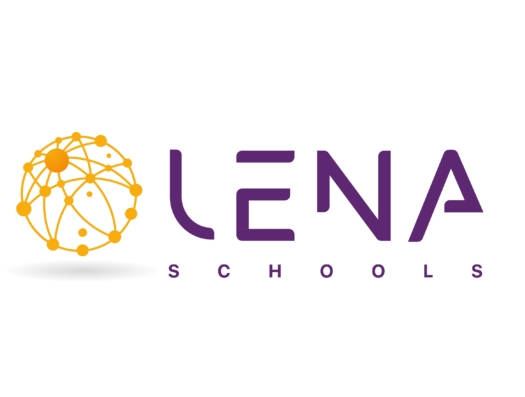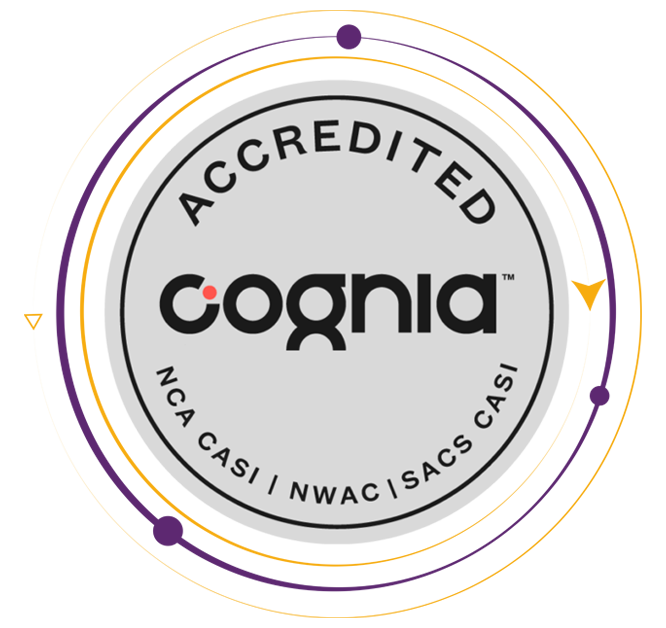Cognia is an international accreditation agency that evaluates and accredits educational institutions, including K-12 schools, colleges, and universities. Cognia Accreditation is a mark of quality and excellence in education.
Lena School has undergone a rigorous evaluation process conducted by Cognia. The evaluation assesses various aspects of the school, including its curriculum, instructional practices, leadership, student support services, and overall school effectiveness.
To achieve Cognia Accreditation, a high school must demonstrate that it meets Cognia’s standards for quality education, continuous improvement, and positive student outcomes. The accreditation process typically involves a self-assessment by the school, followed by an external review conducted by a team of Cognia professionals. The review team visits the school, observes classrooms, interviews staff and students, and examines various evidence and documentation provided by the school.
Lena School is fully accredited by Cognia through our academic partnership. Lena Schools’ academic partner and provider of curriculum and instruction, Advantages School International (ASI), has been granted full accreditation by Cognia since 2011.
We share resources and instructional staff with ASI, and upon mutual agreement, upon your graduation from Lena Schools, you will achieve:
i) An American High School Diploma, officially endorsed by Cognia.
ii) A transcript from the state of Nevada, US, which is apostilled and notarized.
What are the benefits of having Cognia Accreditation?
Being accredited by Cognia offers several benefits to educational institutions. Some of the key benefits include:
1. Recognition of Quality: Cognia Accreditation is widely recognized as a mark of educational quality and excellence. It demonstrates that the accredited institution has met or exceeded rigorous standards set by Cognia, thereby enhancing its reputation and credibility.
2. Continuous Improvement: The accreditation process encourages a culture of continuous improvement within the institution. Schools undergo a comprehensive self-assessment and external review, which helps identify areas for improvement and establish a framework for ongoing growth and development.
3. Enhanced Educational Practices: Accreditation by Cognia promotes the implementation of effective and research-based educational practices. The process encourages schools to evaluate their curriculum, instructional strategies, and student support services, leading to the adoption of best practices that positively impact student learning outcomes.
4. Stakeholder Confidence: Accreditation instills confidence in various stakeholders, including students, parents, educators, and the wider community. It assures them that the accredited institution is committed to providing a high-quality education and that it meets or exceeds established standards of excellence.
5. Access to Resources and Support: Cognia provides accredited institutions with access to a wide range of resources, professional development opportunities, and support networks. This can include access to research, best practices, training programs, and networking events that facilitate collaboration and knowledge sharing among educators.
6. Alignment with International Standards: For institutions seeking international recognition and collaboration, Cognia Accreditation provides alignment with global educational standards. This can facilitate partnerships, exchange programs, and academic transfers between accredited institutions worldwide.
7. Compliance with Regulations: Accreditation helps institutions demonstrate compliance with relevant educational regulations and requirements set by local, regional, or national authorities. It provides evidence of meeting educational standards and can assist in meeting licensing or certification requirements.
Overall, Cognia Accreditation offers numerous advantages, including validation of quality, continuous improvement, stakeholder confidence, access to resources, and compliance with educational standards. These benefits contribute to the growth and success of accredited institutions.

